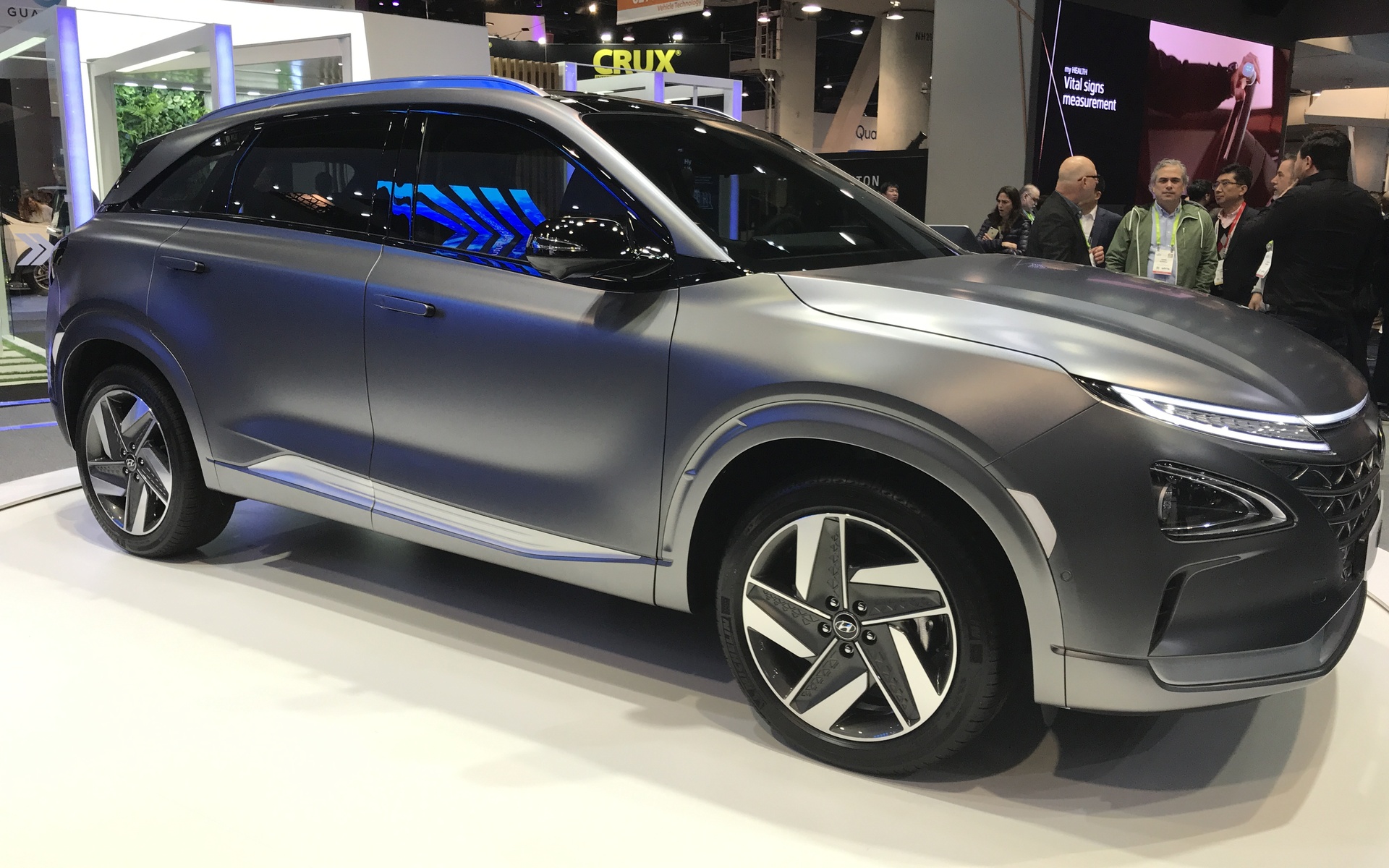Hyundai at CES 2018: Hydrogen and Artificial Intelligence for the NEXO

The automobile is entering an important period of changes. As proof, at this year’s Consumer Electronics Show in Las Vegas, Hyundai is displaying a vehicle boasting three solutions that all have a chance to become reality within the next few years. That vehicle is called NEXO.
First of all, a technology that should still need some time before becoming widely available in Canada, fuel cells. Hyundai, who already showed off the Tucson FCEV in various auto shows and set up a pilot project in British Columbia, has announced that it has enhanced this technology. In the NEXO, the powertrain is smaller than the one in the Tucson. Hyundai says driving range is pegged at 595 km, 169 more than what its predecessor offers. Testing at -29 Celsius and close 50 Celsius was performed, and conclusive. The NEXO’s platform was created to accept a hydrogen powertrain, which allowed relocating the battery pack in the trunk.
Read also
At the same time, the Korean brand presented an application dedicated to fuel cell vehicles, Hydrogen Life Vision, which looks a little like the applications used for managing electric vehicles.
Also, Hyundai is presenting a revised version of its Advanced Driver Assistance System (ADAS), which consists of various safety and semi-autonomous driving technologies. It includes a blind spot monitor that displays both sides of the vehicle on the centre screen, at an angle simply impossible to see on conventional outside mirrors. The Lane Following Assist (LFA) and Highway Driving Assist (HDA) systems allow the NEXO to travel at speeds of up to 145 km/h on open stretches of road and in the city. Obviously, human intervention can always be required! Finally, Remote Smart Parking Assist (RSPA) helps the NEXO park by itself, whether the driver is behind the wheel or not.
The NEXO is part of a vast “green” plan that will allow Hyundai to unveil no less than 18 environmentally friendly models by 2025.
Hyundai has also unveiled the Intelligent Personal Cockpit, an instrument panel that, according to the press release, presents a new approach with the information displayed to the driver. In addition, there’s an artificial intelligence system with voice recognition as well as a driver vital sign detection system.









